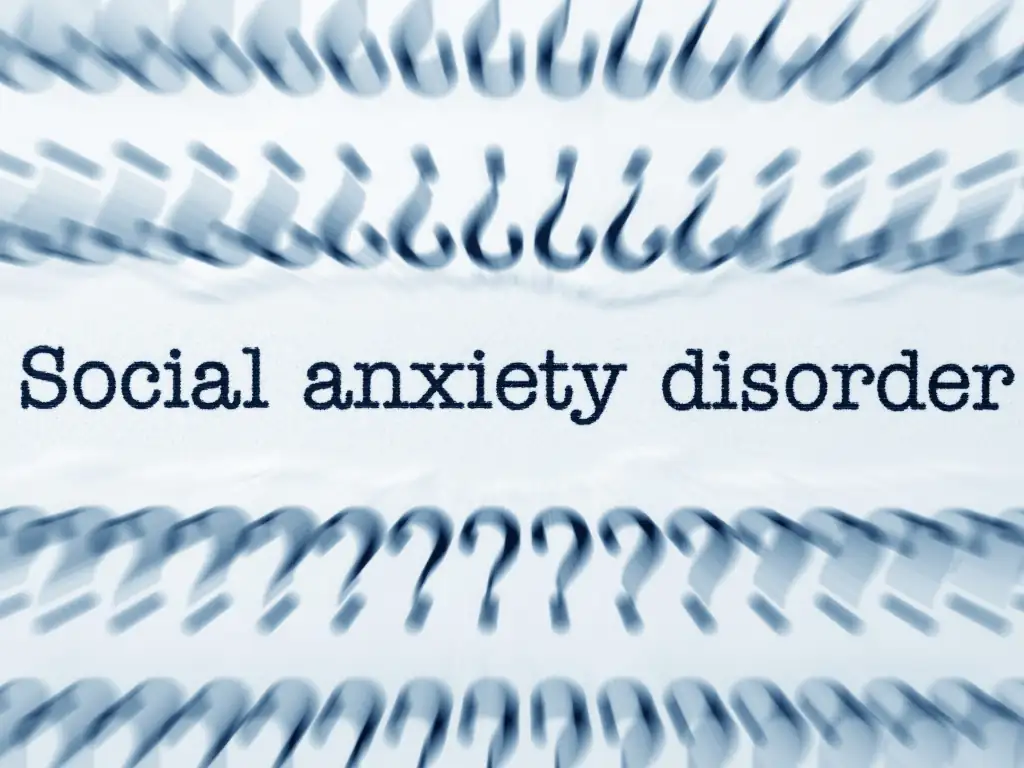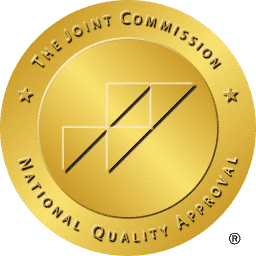Do you ever feel a sudden, intense fear in social situations that seems impossible to overcome? You’re not alone. Social anxiety disorder is a common, but often misunderstood, condition that affects millions of people worldwide.
In this blog post, we’ll unveil the complexities of social anxiety disorder, discuss its symptoms, causes, and explore various treatment options and coping strategies to help you or a loved one lead a more fulfilling life.
Short Summary
- Social anxiety disorder, sometimes called social phobia,
- causes extreme shyness, self conscious social interaction, and often an irrational fear of social settings. These factors can increase the likelihood of developing psychiatric disorders such as anxiety disorders, social anxiety disorders, generalized anxiety disorder, panic disorder and/or other mental health disorders.
- Treatment options include cognitive behavioral therapy (CBT), medications, support groups and self-help techniques.
- Strategies for coping with social anxiety include gradual exposure to situations, relaxation techniques and challenging negative thoughts.
Defining Social Anxiety Disorder

Social anxiety disorder (SAD), is a mental health condition with intensified fear and uneasiness in public settings. It can have a strong negative effect on an individual’s day-to-day activities. This pervasive fear can significantly affect daily activities, relationships, and an overall quality of life.
According to the Anxiety and Depression Association of America (ADAA), social anxiety disorder affects 15 million adults or 7.1% of the U.S. population.
The causes of social anxiety disorder are complex and may involve genetic, environmental, and psychological factors. It’s essential to differentiate social anxiety disorder from shyness, as the latter is a normal personality trait, while the former is a debilitating condition that significantly impacts daily functioning and well-being.
Differentiating Shyness from Social Anxiety Disorder
Shyness can be described as a sense of discomfort or inhibition in social situations. While it may cause some unease, it typically does not hinder one’s ability to function in everyday life. On the other hand, social anxiety disorder involves an intense extreme fear and anxiety in social situations, often resulting in avoidance of social interactions and significant distress. It is important to differentiate between just shyness and social anxiety disorder, as the latter may require professional intervention.
Recognizing Symptoms of Social Anxiety Disorder
To better understand and manage social anxiety disorder, it’s vital to recognize both the psychological and physical symptoms.
Let’s delve deeper into these categories.
Psychological Symptoms
Psychological symptoms of social anxiety disorder encompass negative thought patterns, self-criticism, and fear of judgment. People with social anxiety disorder may constantly worry about being negatively evaluated by others and often focus on their perceived flaws. These thoughts can be pessimistic, critical, and judgmental, leading to a cycle of self-doubt and anxiety.
In addition to negative thought patterns, individuals with social anxiety disorder may experience persistent fear and anxiety in various social situations, such as performance anxiety before speaking in public, poor social skills when meeting new people, or dealing with authority figures. This intense anxiety can significantly hinder their ability to function in everyday life and maintain a healthy social life and personal life.
Physical Symptoms
Strong physical symptoms of social anxiety disorder can have damaging effects. They can be equally as concerning as emotional symptoms. Some common manifestations of the disorder include:
- Extreme sweating
- Shaky hands or voice
- Rapid heartbeat
- Difficulty breathing
These symptoms can not only be uncomfortable, but also reinforce the negative and cyclical thoughts that further exacerbate anxiety.
To manage these symptoms, individuals with social anxiety disorder can benefit from relaxation techniques, gradual exposure to social situations, and challenging their thoughts. These symptoms can severely impact their ability to establish and maintain a relationship with a friend or family member.
Causes and Factors of Risk
The causes of social anxiety disorder are multifaceted, involving a complex interplay of genetic, psychological, and environmental factors. Some potential risk factors include:
- A family history of anxiety disorders
- Early childhood experiences such as bullying or teasing
- Certain personality traits like introversion or low self-esteem
Social anxiety disorder is also associated with other mental health conditions, such as bipolar disorder, ADHD, and substance abuse. Early onset of the disorder may increase the risk of developing depression, drug use, and other mental health issues later in life.
Diagnosing Social Anxiety Disorder
Diagnosing social anxiety disorder involves a thorough evaluation of the signs and symptoms by a mental health professional. This assessment typically includes a comprehensive review of the individual’s physical and anxiety symptoms, medical history, if needed a physical exam, and current life circumstances to determine if the criteria from the Diagnostic and Statistical Manual of Mental Disorders (DSM-5) are met for a diagnosis of social anxiety disorder.
How to Treat Social Anxiety Disorder
Once diagnosed, social anxiety disorder treatment options include various methods such as Cognitive-Behavioral Therapy (CBT), medications, and support groups.
Let’s explore these treatments in more detail.
Cognitive-Behavioral Therapy (CBT)
CBT is a highly effective treatment for social anxiety disorder, focusing on:
- Changing negative thought patterns and behaviors
- Helping individuals identify and challenge their cognitive distortions
- Replacing negative thought patterns with healthier ones
- Developing more effective coping strategies for social situations
During CBT sessions, individuals may engage in exposure therapy, where they gradually work up to facing their fears in a safe environment. This structured approach can help individuals with social anxiety disorder build confidence, reduce anxiety, and improve their overall functioning in social situations.
Medications
In addition to CBT, medications may be prescribed to help manage the symptoms of social anxiety disorder. Selective serotonin reuptake inhibitors (SSRIs) and serotonin-norepinephrine reuptake inhibitors (SNRIs) are commonly prescribed antidepressants to treat depression but also can help reduce anxiety and improve mood. These medications may have side effects, such as headaches, nausea, or difficulty sleeping, but they are generally well tolerated.
Beta-blockers are another class of medications that can be helpful for managing a physical symptoms of social anxiety, such as excessive sweating, trembling, and rapid heartbeat. These drugs work by blocking the stimulating effects of adrenaline, thereby reducing the physical manifestations of anxiety.
It’s important to note that medications should be used in conjunction with therapy and other coping strategies under the guidance of a healthcare professional. The combination of medications and therapy can often provide the most effective treatment approach for individuals with social anxiety disorder.
Support Groups and Self-Help Techniques
Support groups and self-help techniques can provide additional assistance in coping with social anxiety disorder. These groups are composed of individuals who share similar experiences and can offer honest feedback and encouragement. Participating in a support group can help individuals with social anxiety disorder confront and overcome their fears in a supportive, non-judgmental environment.
Self-help techniques, such as deep breathing, mindfulness, and progressive muscle relaxation, can also be beneficial in managing symptoms of social anxiety. By practicing these techniques regularly, individuals can learn to better control their anxiety and develop healthier coping mechanisms.
Strategies for Coping with Social Anxiety
In addition to professional treatments, there are several strategies that individuals can implement in their daily lives to help cope with social anxiety.
Let’s examine some of these strategies in more detail.
Gradual Exposure to Social Situations
One of the most effective ways to overcome social anxiety is through gradual exposure to social situations. This involves slowly and systematically facing social situations that provoke anxiety, allowing the individual to build confidence and reduce fear over time.
Creating an anxiety ladder can be a helpful tool in this process. By breaking down social situations into smaller, more manageable steps, individuals can gradually work their way up the ladder, facing increasingly challenging situations as they become more comfortable and confident.
Relaxation Techniques
Relaxation techniques, such as deep breathing and mindfulness, can help alleviate symptoms of social anxiety by promoting a sense of calm and focus. Deep breathing exercises involve slow, controlled breaths, which can help reduce physical tension and anxiety. Mindfulness involves paying attention to the present moment without judgment, allowing individuals to become more aware of their thoughts and feelings without becoming overwhelmed.
By practicing relaxation techniques regularly, individuals with social anxiety disorder can learn to better manage their anxiety and develop healthier coping mechanisms.
Challenging Negative Thoughts
Another key strategy for coping with social anxiety is to challenge negative thoughts and cognitive distortions. These unhelpful thought patterns can contribute to anxiety and undermine self-esteem. By questioning and reframing these thoughts, individuals with social anxiety disorder can:
- Identify and challenge negative self-talk
- Replace negative thoughts with more realistic and positive ones
- Practice self-compassion and kindness towards oneself
- Focus on strengths and achievements
- Seek support from a therapist or support group
By developing healthier thought patterns, individuals can improve their self-confidence and reduce social anxiety.
Some helpful techniques for challenging negative thoughts include:
- Identifying cognitive distortions (such as all-or-nothing thinking or catastrophizing)
- Gathering evidence to support or refute these thoughts
- Considering alternative explanations for events or situations
Over time, this practice can lead to a more balanced and accurate perspective, helping to reduce anxiety in social situations.
Summary
Social anxiety disorder is a complex and often misunderstood condition that can significantly impact an individual’s life and personal relationships. By understanding the symptoms, causes, and risk factors of the disorder, as well as exploring various treatment options and coping strategies, individuals affected by social anxiety disorder can begin their journey towards a more fulfilling, anxiety-free life. Remember, you are not alone in this struggle, and with the right support and resources, you can overcome social anxiety and embrace a brighter future.
Treating Social Anxiety Disorder at CarePlus New Jersey
If you or someone you know is experiencing signs or symptoms of social anxiety disorder, it’s crucial to consult a healthcare provider. A proper diagnosis is the first step towards successful treatment and improved quality of life. CArePlus is located throughout Northern New Jersey. Our mental health clinicians trat all ages and as a non-profit work on a sliding scale and accept most private insurances and all state insurances.
Frequently Asked Questions
What are the top signs of social anxiety?
People with social anxiety disorder experience fear of interacting or talking with strangers, intense fear of being judged, avoidance of places where there are other people, blushing and sweating, difficulty making eye contact, and low self-esteem.
These symptoms can be debilitating and can interfere with daily life. People with social anxiety disorder may feel embarrassed or ashamed of their symptoms, and may be reluctant to seek help.
How do you cope with social anxiety?
To cope with social anxiety, challenge negative thoughts, focus on others instead of yourself, control your breathing, face your fears, make an effort to be more social, and adopt an anti-anxiety lifestyle.
Additionally, develop stress-reduction skills, get physical exercise, get enough sleep, eat a healthy diet, avoid alcohol and caffeine, and reach out to people with whom you feel comfortable.
What is social anxiety caused by?
Negative childhood experiences such as bullying, teasing and rejection, as well as trauma and abuse, can lead to the development of social anxiety.
Family conflict and other life stressors may also be contributing factors.
What is the difference between shyness and social anxiety disorder?
Shyness is a common personality trait, while social anxiety disorder is an intense fear or anxiety of social situations that affects daily life.
How is social anxiety disorder diagnosed?
A mental health professional can accurately diagnose social anxiety disorder by evaluating criteria from the DSM-5.
Sources:
https://emedicine.medscape.com/article/290854-overview
https://www.psychiatry.org/patients-families/anxiety-disorders/what-are-anxiety-disorders
https://my.clevelandclinic.org/health/diseases/22709-social-anxiety
https://www.nimh.nih.gov/health/statistics/social-anxiety-disorder
https://www.ncbi.nlm.nih.gov/books/NBK327674/
https://adaa.org/understanding-anxiety/facts-statistics
https://www.nimh.nih.gov/health/publications/social-anxiety-disorder-more-than-just-shyness
https://en.wikipedia.org/wiki/Social_anxiety_disorder
https://www.medicalnewstoday.com/articles/176891

Jaime Arlia, MA, LPC, ACS, Senior Vice President of Consultation and Education at CarePlus New Jersey
Jaime Arlia, MA, LPC, ACS is the Senior Vice President of Consultation and Education at CarePlus New Jersey. As a Licensed Professional Counselor and Approved Clinical Supervisor Jaime has been providing therapy to children, families and individuals for more than 20 years, with a focus on trauma-informed care, cognitive behavioral therapy and family systems. Jaime has provided mentorship and supervision to many clinicians throughout her tenure, and is a trainer on various mental health topics for school professionals, first responders and community members.









